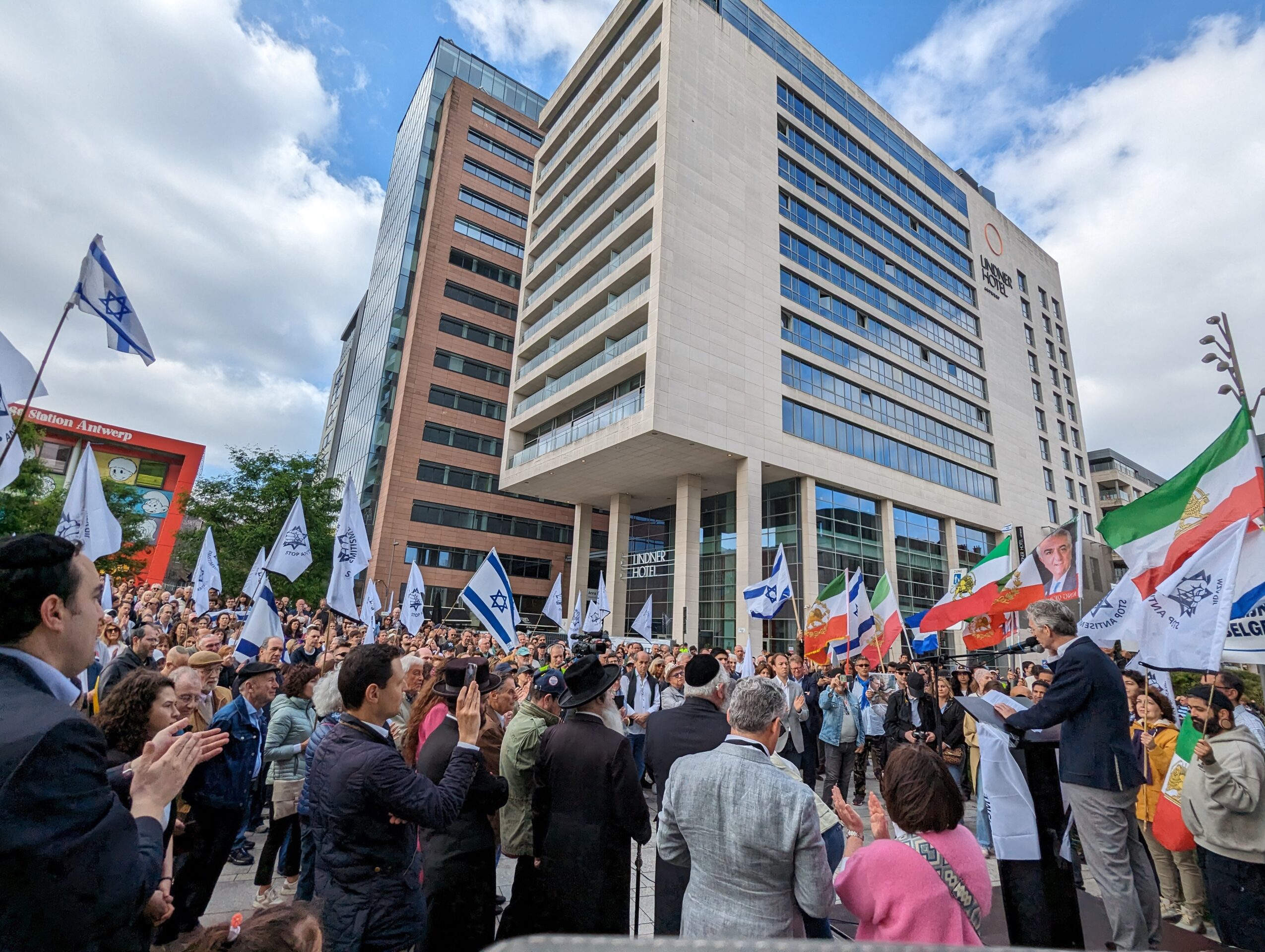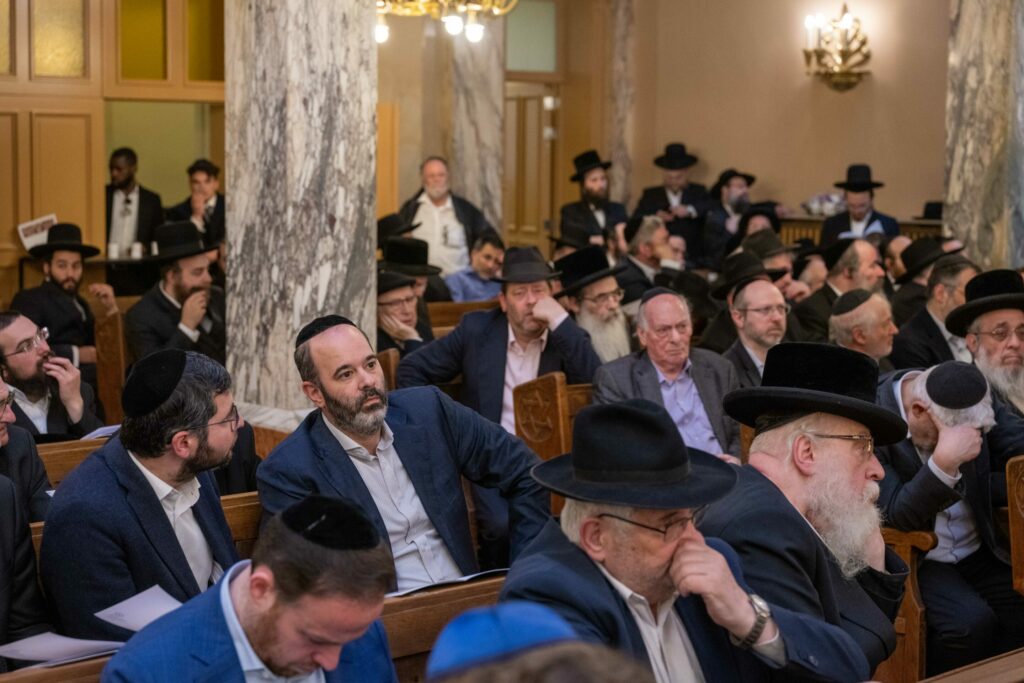Recent violence in Amsterdam and social media calls to attack Jews in Antwerp have shaken the Jewish community in Belgium. Despite a strengthened police presence, many are adapting the way they live out of fear.
The violence in Amsterdam in recent days, referred to as "anti-Semitic hit-and-run squads" by Femke Halsema the Dutch capital's mayor, is believed to have fuelled a call for attacks on Jews in Antwerp. The city's police were made aware of alarming messages on social media, inciting violence against Jews, and responded with an investigation. This led to targeted actions and several arrests, including of minors.
The quick response to the violence in Amsterdam and the social media posts in Antwerp was welcomed by Jewish people in the targeted districts. On Sunday, Antwerp police deployed a visible presence and a drone in the Jewish neighbourhood. Locals were also initially not told about the calls for attacks to avoid scaremongering.
"There have been no new arrests [since Monday]. We are monitoring the situation closely," Antwerp police spokesperson Wouter Bruyns confirmed to The Brussels Times. He added that there is continuous contact between the Jewish community in the city and the police zone.
"The police have done a very good job," Naftuli Pollak, Director of the Jewish Information and Documentation Centre (JID) told The Brussels Times. "They were on top of the impending attacks that were planned on Sunday and Monday and intercepted these. Extra officers are also now visible in the neighbourhood. The police deserve kudos for how they handled this."
Living in fear
Despite the extra measures, fear is rife among Jewish people in Antwerp. "There will always be people slipping through the cracks and things the police won't see. We have to learn to live with that. As Jews, we have learned to live with the fact that sometimes we have to be scared on the street because we are visibly Jewish," said Pollak.
"I hear from parents who don't let their children walk to school alone or don't let them go outside to play anymore. It is unacceptable that someone should be afraid to go outside because they are Jewish." He also pointed to the Antwerp Jewish community football club Maccabi wanting to postpone youth matches because the players' parents fear violence. "People stop doing things because of anti-Semitism."

A demonstration to demand a safe living environment for Jews in Belgium, organized by JID vzw, on Sunday 2 June 2024. Supporters of the Iranian opposition were also present at the rally. Credit: Belga / Tijs Vanderstappen
He noted that anti-Semitism has always existed and been part of daily life for the community but that it peaks depending on topicality. While he believes that people are entitled to their own opinions on the Israel-Palestine war, he stresses this should never be a reason to attack people. "If you have an opinion about the conflict in Russia, and don't agree with what the country is doing, are you going to attack Russians on the streets in Belgium?"
Pollak argued that some people believe they have the right to attack Jews all over the world, be it physically or verbally, because they don't agree with Israel's actions. "They identify every Jew with Israel, whether they have affinities with Israel or not. You should never attack anyone physically or verbally just because they are Jews and there is a conflict with Israel."
When questioned about the security of Jewish people, spokesperson for Justice Minister Paul Van Tigchelt, Jan Van der Cruysse, said the figures point to an increase in verbal aggression and "minor incidents" against the community since the start of the conflict in Gaza in October 2023. "But we have not seen serious acts of violence," he told The Brussels Times.
"Looking at the composition of our country, with clearly defined population groups on either side of the conflict living geographically close together, the situation is actually under control at the moment. It is also very closely monitored by the government."
Pollak pointed to two physical attacks against Jewish people in recent weeks and stressed that it is difficult to pinpoint exactly how many attacks have taken place, either verbal or physical. "Many people don't report such incidents to the police, as they don't believe it will change matters. I am sure that there have been more incidents than the ones we are aware of."
Solutions for safety?
Increased police presence alone won't tackle the sense of insecurity among Jews in the long term. Pollak argued that suspects being arrested is a first step. "But the question is, what happens afterwards? Is the justice system doing its job? Are those people being prosecuted?"
He argued that the Prosecutor's Office and the judiciary should shift up a gear to counter impunity. "If not, people will continue to be violent. Stricter sentences are part of the solution."
Van der Cruysse stressed that the ministry understands people's concerns and that it is doing what is necessary to address them. "Our law provides for people to have their own opinion, but not when that means people calling for violence or hate speech. At this point, it is the government's job to intervene."
Some in the community have asked for the presence of soldiers on the street, an issue that has come up before. "But actually, this request has no solid basis, there is no real need for that," said Van der Cruysse.
He added that the military is not a solution to this problem, as they cannot act as law enforcement. "They are not allowed to identify people, and they are not allowed to arrest people. The police, on the other hand, can take action."
Finally, Pollak stressed that education is also central to improving Jews' sense of security. "Non-Jewish parents should talk to their children about this. They also have a responsibility to stop such attacks from happening."

